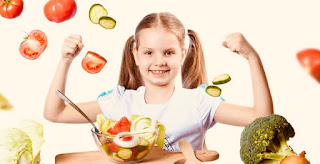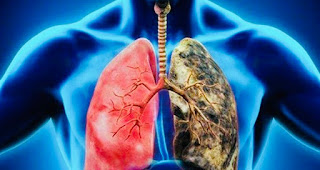Nutrition for 3-7 Years Old Children
As of the age of 2, negativism (adverse behavior) situation in children will confuse the father and the other. At the end of this, the real winner will be the child. Parents are not very happy with this situation of their children. Because look baby don't put that hour there, okay? "If serving food on your plate, I'll let you play food on the television or computer." Think about it; By exposing them to enough nutritional calories for you, you also prevent him from moving by watching the computer or TV and wasting his calories. CONCLUSION You will have "your obese child".
While children are suffering from febrile illnesses (flu, measles, mumps, throat infections), they lose their desire to eat and have no appetite. This situation is quite normal. It should never be overcome. Sometimes appetite may decrease during exam or vacation trip. Absolutely important rule is that children should not be forced to eat at any age. Eating may improve in children whose father is on a business trip or whose parents are separate. This may result in a state of not eating at all or vice versa. This situation may also increase and decrease during their fear, unhappiness and excitement from time to time. Children should never be approached in such a way that they act adversely. He should never be punished for this. Children expect attention, affection, love and communication. This should be presented in a very balanced way.

According to the parents, their children are generally in the psychology of not eating little or even eating. For this reason, they tend to arc with certain foodstuffs, which are a set of foodstuffs from morning to night, and stuff these foods into his mouth. Here's to you once again the “obese child case”. Those simple mothers who overfeed for years, thinking that their child has been underfed.
You parents; To your fat kid who ate nothing (for you)
How;
"Eat less, baby"
"Look, eat a little less or get weaker"
"Do sports and exercise, baby"
You will say, "Let me buy you a nice swimsuit with the weak".
On time;
Weren't you the one who pushed your child to inactivity when he said, "If you finish doing it, I'll let you play video games"?
Actually; You caused the success rates of your parents to decrease. But you would never accept it. This is true and true but…
Appearance of Loss of Appetite as a Behavioral Disorder in Children:
Excessive falling on the parents or, conversely, indifference.
Stiffness in eating rules.
Threatening or rewarding the child about eating.
Feeding the child to the point of vomiting.
Mother feeding the child, even when he can eat himself.
To force the child to eat foods he does not like. "If you don't eat your food, the wolves will catch you." Dog chases behind you ”(you also don't believe) to feed it with nonsense.
Emotionally and physically punishing the child when he or she is not eating or eating too little.
Continuously showing other children as an example to the child, "Look, Ayşe and Ali are eating much more than you." What kind of child are you?
It is an important age group between 0-6 years old. In this case, parents are definitely good lessons to educate their children.
Energy and nutritional products at the age of 3-5 are not as high as in infancy. However, as body development continues in these age groups, proper nutrition is also very important. This quote should be taken from 45-50% of daily energy from carbohydrates, 15-20% from protein and 35% from fats. Talk to your child about foods like chocolate, candy, coke, chips, and persuasion. Explain that these foods can have negative effects on his health and development. Do not be angry, do not shout. Remember, to get what you want, the only way to do this is to persuade.
Although your child will enter a regular development period, the same development will begin in his appetite. His favorite and disliked meals will continue, and even his personal eating habits, such as asking that the dishes do not touch each other on the plate. It will meet this situation and allow these behaviors to change in a short time. It will be more willing to try new flavors to be shown against the food he dislikes and dislikes.
In order to get in on the new news, scaled down over time, the other kid on the street refuses unfamiliar food and runs away from vegetables. They prefer simple, unmixed and roomy dishes rather than hot or cold. They can also give up eating large portions as they reject strong flavors.
Requirements for daily nutritional feeding:
2 glasses of milk, 1 bowl of yogurt or cheese
1 serving of white or red meat or eggs
1 serving of vegetables
You should give foods rich in vitamin C daily and vitamin A (spinach, egg yolk, carrot, pepper, zucchini, yellow and green vegetables) at least 3 or 4 times a week.
-4 servings of cereal (corn, rice, barley, bran, pasta)
Useful Habits in Children's Nutrition:
Check your meal times.
Make sure your child is hungry when it comes to the table. That is, they will tend not only to eat but also to enjoy food.
Develop strategies to help you wait for your impression, even if you are hungry.
Spending private time with his father while the meal is being prepared can also be used as an alternative.
Don't be critical.
Your child's ability to eat is developing morally right now, and the more critical you are this time, the better it will be for him.
Studies show that the more criticized telling is, the worse awareness of it.
Reasonable boundaries and expectations of course remain.

0-3 years is a critical period in infant feeding..
During this period, mothers should make the best possible start for their babies in nutrition, as in all matters. The foundations of healthy nutrition are laid in this age range and eating habits during this period affect the health of the baby in advanced ages. In order to support your baby's healthy nutrition, we can list the points you need to pay attention to while preparing food for him:
Do not add salt and sugar to your baby's food.
Do not use products that contain additives made for adults. (Whipped cream, chocolate, instant cake, etc.)
Choose liquid oil. (Olive oil)
Do not use cow's milk before the age of one. In places where milk should be used - as WHO (World Health Organization) does not recommend cow milk, especially until the age of 1 - choose follow-on milk suitable for the month of babies.
When preparing your baby's food, keep in mind that a healthy and balanced diet is essential.
With its excellent nutritional content, breast milk is easily digested and used effectively. It protects your baby from diseases, it costs less than feeding with formula. Moreover, by breastfeeding, it becomes easier to establish a mother-baby bond, it becomes possible to delay a new pregnancy and to keep the mother healthy.
Babies who are exclusively breastfed in the first 6 months after birth suffer less infectious diseases such as diarrhea and pneumonia, allergic diseases, and grow healthier. Therefore;
Feed your baby with breast milk alone for the first 6 months. Additional foods given with breast milk during these months prevent the baby from getting enough of breast milk.
Your baby may have a small amount of poo after each feeding, which is sometimes mistakenly considered diarrhea. However, this stool, which is golden yellow in color, does not smell bad, is watery and can be up to 7 - 8 times a day, is completely normal. Poop with the same characteristics but made in large quantities every 3 days is also considered normal. However, if the stool is too hard, the reason should be investigated.
Research results show that after breastfeeding, the tendency to feed babies with cow's milk is common. However, the content of cow's milk is not suitable for children. When cows milk is mentioned, mothers think of street milk and it is thought that the disadvantages of cow's milk are due to hygienic reasons. However, the main problem with cow's milk stems from the content. With the same belief, families who bring babies to adult tables before the age of 1 start to give their babies the fatty, tomato paste, spicy and salty foods they cook for themselves at home. However, the salt and fat in these foods create a burden on the kidneys of babies and increase the risk of high blood pressure, sugar and obesity in later ages.
Apart from that, water diseases are less common in those who are breastfed:
Meningitis,
Urinary tract infection,
Diarrhea,
Chronic diseases such as diabetes,
Allergic diseases - eczema, asthma, food allergies
Premature babies whose immune systems are not sufficiently developed benefit especially from breast milk.
Give your baby foods rich in iron after 6 months. Such as red meat, green leafy vegetables and egg yolk.
Beta-carotene is protective and is converted into vitamin A, which provides normal growth and vision of tissues. The best source of beta-carotene is mango.
2-3 times a day fruit consumption prevents constipation and is important for healthy bowel movements.
Add extra virgin olive oil to your baby's food after the cooking process is over.
Vitamin C is necessary for the gums, it speeds up the absorption of iron and provides the development of the brain.
Too much salt is harmful to babies and children. Infants less than 1 year old, more than 1 gram (400 mg sodium) per day
It is recommended that children aged 1-6 should not consume more than 2 grams (800 mg of sodium) of salt per day. Because even a little increase in the amount of salt increases the risk of blood pressure in the future.
Cereals are foods rich in fiber and iron; Iron absorption increases especially when taken with fruits containing vitamin C. The first grain to start baby should be rice.
Processed meats such as salami, sausage and canned foods are not healthy for baby nutrition.
The variety of vegetables you give your baby is important. According to studies, the variety of vegetables given within 1 week allows the baby to accept the new foods.
- Vitamin C is necessary for the gums, it accelerates the absorption of iron and provides the development of the brain.
- Do not store the food you cook for your baby for more than 2 days and do not heat it more than 1 time.













Comments
Post a Comment